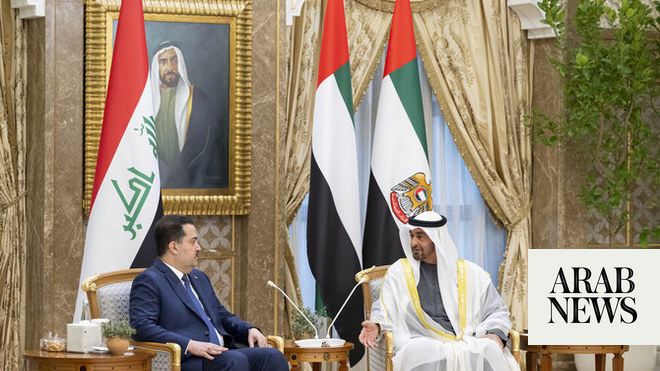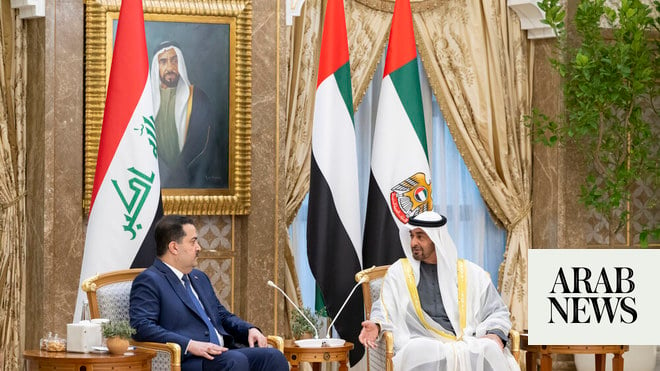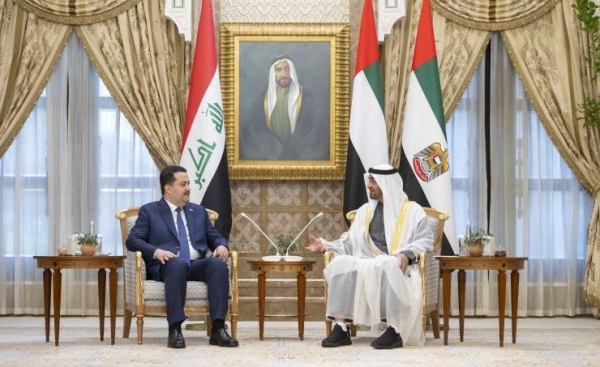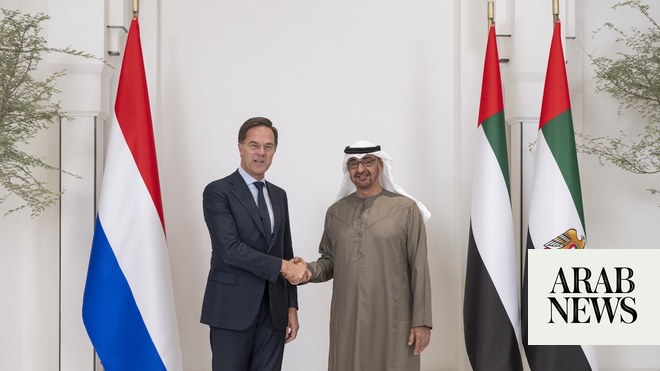
UAE President Sheikh Mohammed bin Zayed Al Nahyan received a phone call from Israeli Prime Minister Benjamin Netanyahu and discussed bilateral relations and ways to enhance them to serve common interests.
Sheikh Mohammed affirmed the UAE's ongoing commitment to bilateral relations with Israel, describing its cooperation as a strategic approach to peace and development, an aspiration for the entire region.
He also confirmed the UAE's willingness to augment further efforts to develop this promising relationship.
During the call, the President indicated that the Abraham Accords provided a practical framework to foster bilateral cooperation further and emphasized the UAE's continued effort to collaborate across multiple fields and sectors.
Sheikh Mohammed pointed to the countries' Comprehensive Economic Partnership Agreement (CEPA), which entered into effect on Apr. 01, 2023, as well as the joint efforts on climate action and working towards delivering a successful COP28 in the UAE later this year, as practical examples of what this growing relationship is achieving daily.
The UAE will work with Israel, fellow Arab nations, and international partners to avoid regional escalation and advance a path to peace and stability, said the President, reiterating that the UAE will support all positive action toward achieving these critical goals.
The Comprehensive Economic Partnership Agreement between the two countries entered into force on Apr. 01.
It reduces or removes tariffs on more than 96 percent of product lines, which covers 99 percent of the current value of traded goods between the UAE and Israel.
The CEPA is designed to push UAE-Israel non-oil bilateral trade from the $1.3 billion recorded in 2021 to $10 billion by the decade's end.
In 2022, bilateral non-oil trade reached $2.49 billion, a 90 percent increase on 2021's total, with re-exports from Israel growing 71.2 percent and non-oil exports to Israel climbing 48.6 percent.
The agreement with Israel removes unnecessary trade barriers, improves market access for services suppliers, opens opportunities in government procurement, provides a platform for SMEs to expand internationally, establishes parameters for digital trade, protects intellectual property, and creates transparent trade remedy mechanisms.











